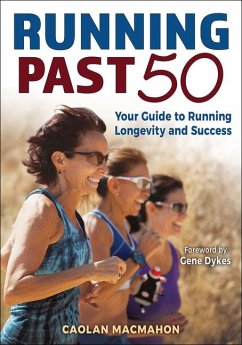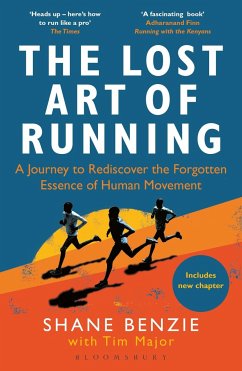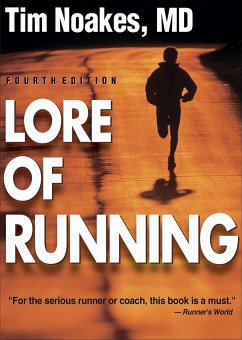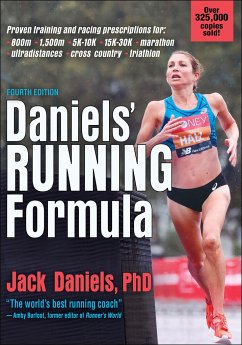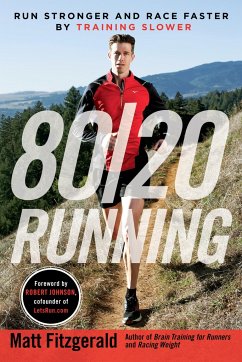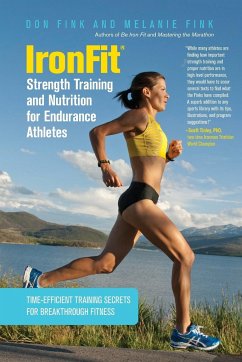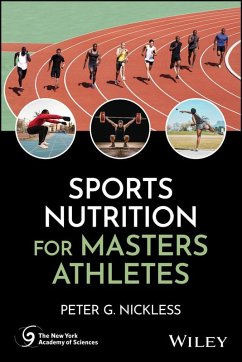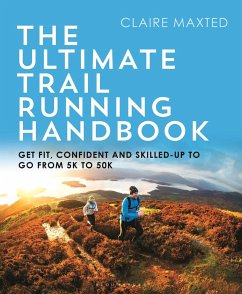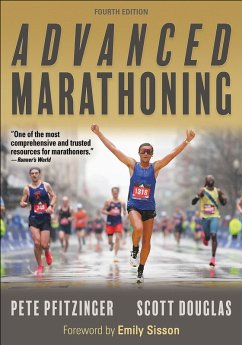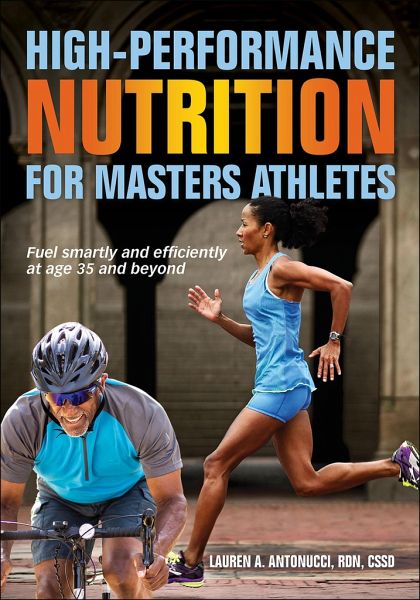
Lauren A. Antonucci
Broschiertes Buch
High-Performance Nutrition for Masters Athletes
Versandkostenfrei!
Versandfertig in 2-4 Wochen

PAYBACK Punkte
16 °P sammeln!




Aging shifts nutritional demands, yet peak performance remains attainable. Uncover strategies to fine-tune your intake of carbohydrates, protein, fats, and hydration for training, competition, and recovery. Real-world insights and sample meal plans guide adjustments even amid chronic health challenges.
Lauren Antonucci, RDN, CSSD, CDE, CDN, is the owner and director of Nutrition Energy, where she creates individualized plans that fit the lifestyle of each client, helps them develop a healthy relationship with food and their bodies, and guides them to reach their nutrition and health goals. She is a registered dietitian nutritionist (RDN), is certified by the Academy of Nutrition and Dietetics as a specialist in sports dietetics (CSSD), and is certified by the National Certification Board for Diabetes Educators as a diabetes educator (CDE). Antonucci has been running, swimming, and cycling for as long as she can remember and has completed 13 marathons (PR 3:09), three Ironman Triathlons, and countless other running and triathlon races. She is a sought-after presenter on the topic of sports nutrition and hydration, and she has presented at many professional conferences, including American College of Sports Medicine (ACSM), USA Triathlon International Coaching Symposium, the Greater New York Dietetic Association (GNYDA), and many New York Road Runners (NYRR) events and New York City Marathon Expos. She has also presented to numerous collegiate athletic teams, most running and triathlon teams and clubs in New York City, and many corporate organizations. Antonucci wrote a nutrition column for Triathlete magazine for three years and wrote for New York Road Runners magazine for over a decade. She has appeared on several television programs to provide practical advice on a wide array of nutrition and health topics, and her advice has also been featured in Runner’s World, Ironmanlive.com, NYTimes.com, Diabetes Self-Management, Time Out New York, Metrosports, and many other publications. She earned a bachelor’s degree in psychobiology from Binghamton University, was awarded a fellowship in nutritional biochemistry at University of California at Berkeley, and earned a master’s degree in clinical nutrition from New York University. She lives in New York City with her husband and three children and is a proud Masters athlete.
Produktdetails
- Verlag: Human Kinetics Publishers
- New ed
- Seitenzahl: 272
- Erscheinungstermin: 26. Februar 2021
- Englisch
- Abmessung: 251mm x 178mm x 23mm
- Gewicht: 580g
- ISBN-13: 9781492592976
- ISBN-10: 1492592978
- Artikelnr.: 60072872
Herstellerkennzeichnung
Libri GmbH
Europaallee 1
36244 Bad Hersfeld
gpsr@libri.de
Für dieses Produkt wurde noch keine Bewertung abgegeben. Wir würden uns sehr freuen, wenn du die erste Bewertung schreibst!
Eine Bewertung schreiben
Eine Bewertung schreiben
Andere Kunden interessierten sich für


